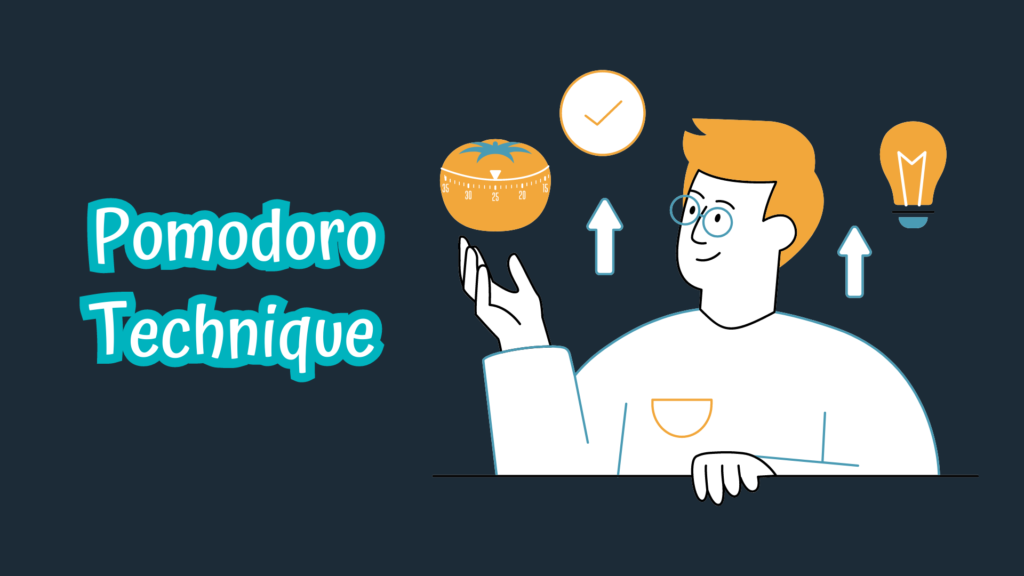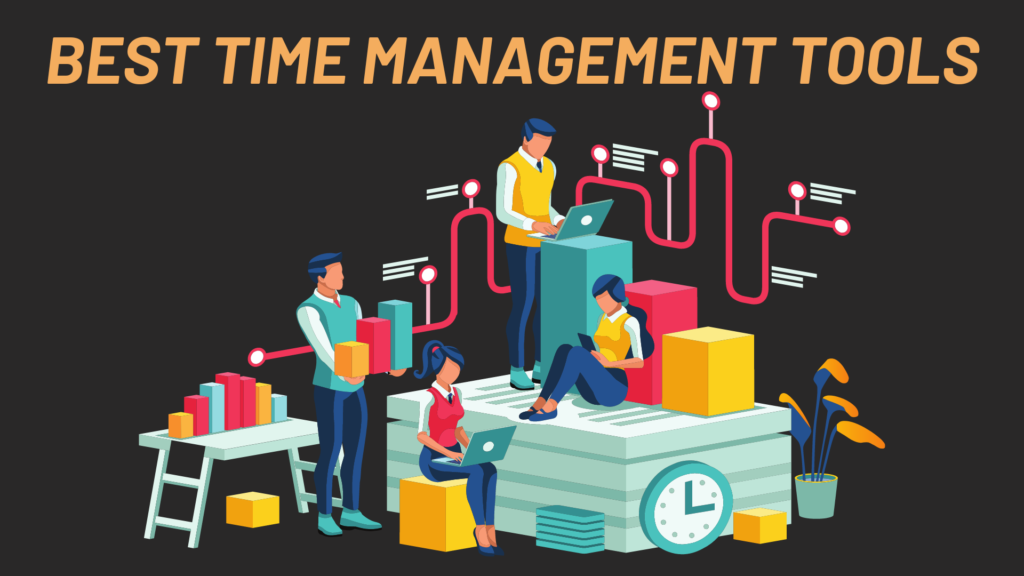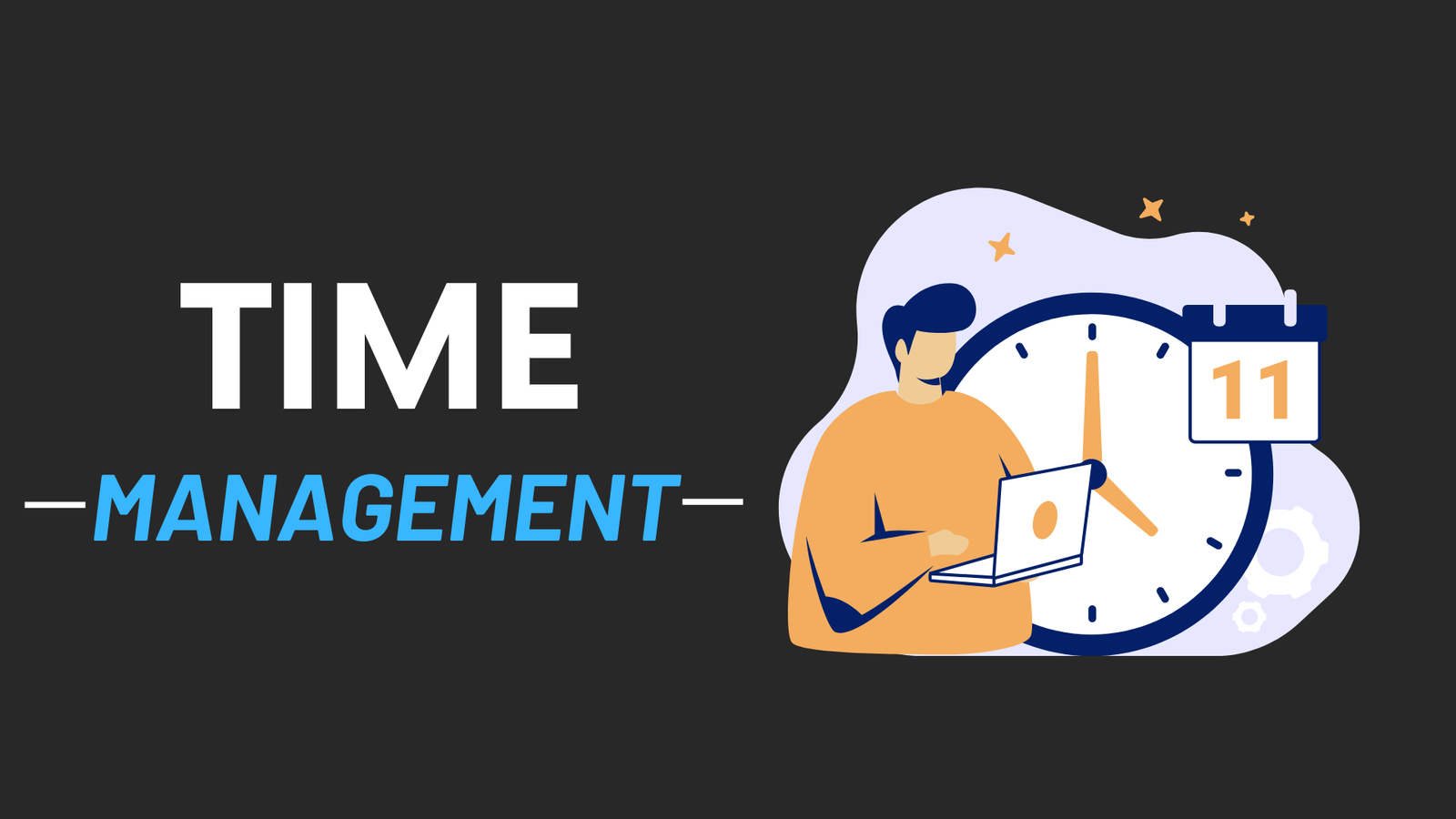Time is a limited resource, and it is important to manage it effectively to achieve maximum productivity. Poor time management skills can lead to decreased productivity, missed deadlines, and increased stress. Effective time management skills allow individuals to prioritize tasks, stay focused, and accomplish more in less time.
For example, let’s consider a student who has a deadline for a project. If student does not manage their time effectively, they may procrastinate until the last minute, resulting in poor-quality work and increased stress. On the other hand, if the student manages their time effectively by breaking down the project into manageable tasks and setting a schedule for completing each job, they are more likely to produce high-quality work and meet the deadline with less stress.
The benefits of effective time management extend beyond students to all areas of life, including work, personal relationships, and hobbies. By managing time effectively, individuals can reduce stress, increase productivity, and achieve a better work-life balance.
In this blog post, we will discuss these Points.
By the end of this post, you will have a better understanding of the importance of time management in productivity and the skills and tools needed to manage time effectively.
Understanding the concept of time management
Time management is the process of planning and organizing one’s time to maximize productivity and achieve specific goals. It involves prioritizing tasks, setting realistic deadlines, and allocating the necessary amount of time to complete each task.
Effective time management enables individuals to work efficiently, reduce stress, and achieve a better work-life balance.
Benefits of Effective Time Management:
Effective time management provides numerous benefits. By managing time effectively, individuals can increase productivity, reduce stress, and achieve a better work-life balance. Effective time management skills allow individuals to:
- Prioritize Tasks: Effective time management skills enable individuals to prioritize tasks based on their importance and urgency. By identifying the most important tasks and completing them first, individuals can achieve maximum productivity and reduce stress.
- Set Realistic Deadlines: Effective time management skills enable individuals to set realistic deadlines for each task. By setting realistic deadlines, individuals can avoid overcommitment, reduce stress, and produce high-quality work.
- Allocate Time Effectively: Effective time management skills enable individuals to allocate the necessary amount of time to complete each task. By allocating time effectively, individuals can avoid wasting time on unimportant tasks and focus on tasks that matter.
Common Time Management Mistakes:
There are several common time management mistakes that individuals should avoid, including:
- Procrastination: Procrastination is the act of delaying or postponing tasks. Procrastination can lead to decreased productivity and increased stress.
- Multitasking: Multitasking is the act of performing multiple tasks simultaneously. Multitasking can lead to decreased productivity and increased stress.
- Lack of Prioritization: Failing to prioritize tasks can lead to a lack of focus, decreased productivity, and increased stress.
In summary, effective time management is essential for maximizing productivity and achieving specific goals. By prioritizing tasks, setting realistic deadlines, and allocating time effectively, individuals can increase productivity, reduce stress, and achieve a better work-life balance.
However, individuals must avoid common time management mistakes such as procrastination, multitasking, and lack of prioritization.
Techniques for effective time management
There are several techniques individuals can use to manage their time effectively. By using these techniques, individuals can prioritize tasks, stay focused, and accomplish more in less time. The following are some techniques for effective time management:
Prioritization: Prioritization involves identifying the most important tasks and completing them first. By prioritizing tasks, individuals can focus on what matters most and achieve maximum productivity.
For example, a student may have multiple assignments due at the same time. By prioritizing the assignments based on their importance and urgency, the student can complete the most important assignments first, reducing stress and increasing productivity.
Time Blocking: Time blocking involves scheduling specific blocks of time for specific tasks. By scheduling specific blocks of time for each task, individuals can stay focused and avoid distractions.
For example, a professional may schedule a specific block of time each day for responding to emails. By scheduling a specific block of time for responding to emails, the professional can avoid distractions and stay focused on other tasks.
Pomodoro Technique: The Pomodoro Technique involves breaking down work into 25-minute intervals, followed by a 5-minute break. Individuals can avoid burnout and stay focused by breaking down work into intervals.

For example, a writer may use the Pomodoro Technique to write a book. By breaking down the writing process into 25-minute intervals, the writer can avoid burnout and stay focused.
Creating a Schedule: Creating a schedule involves planning out each day in advance. By creating a schedule, individuals can stay on track and avoid wasting time on unimportant tasks.
For example, a working parent may create a schedule for their day, including work tasks and personal tasks such as picking up children from school. By creating a schedule, the parent can stay on track and accomplish more in less time.
Time Tracking: Time tracking involves tracking the amount of time spent on each task. By tracking time, individuals can identify areas where they are spending too much time and adjust their time management accordingly.
For example, a business owner may use time-tracking software to track the amount of time spent on each project. By tracking time, the business owner can identify areas where they are spending too much time and adjust their time management accordingly.
By using techniques such as prioritization, time blocking, the Pomodoro Technique, creating a schedule, and time tracking, individuals can manage their time effectively and accomplish more in less time.
Strategies for improving productivity through time management
Effective time management can significantly improve productivity. By using the right strategies, individuals can manage their time effectively and accomplish more in less time. The following are some strategies for improving productivity through time management:
1) Minimize Distractions: Distractions can significantly reduce productivity. To minimize distractions, individuals should turn off notifications on their devices, close unnecessary tabs on their computers, and avoid multitasking.
For example, a writer may turn off notifications on their phone and computer while writing to avoid distractions and stay focused.
2) Take Breaks: Taking breaks is essential for maintaining productivity. By taking breaks, individuals can avoid burnout and stay focused.
For example, a software developer may take a 10-minute break every hour to avoid burnout and stay focused.
3) Set Goals: Setting goals is essential for improving productivity. By setting specific, measurable, achievable, relevant, and time-bound (SMART) goals, individuals can stay focused and accomplish more in less time.
For example, a sales representative may set a SMART goal of making 20 calls per day to achieve their sales target.
4) Delegate Tasks: Delegating tasks is essential for maximizing productivity. By delegating tasks to others, individuals can focus on tasks that require their unique skills and expertise.
For example, a project manager may delegate administrative tasks to their assistant, allowing them to focus on project planning and execution.
5) Avoid Procrastination: Procrastination can significantly reduce productivity. To avoid procrastination, individuals should break down tasks into smaller, manageable steps and set deadlines for each step.
For example, a student may break down a research paper into smaller steps such as selecting a topic, researching, outlining, and writing each section, and setting a deadline for each step to avoid procrastination.
6) Use Technology: Technology can significantly improve productivity. By using productivity tools such as time-tracking software, project management software, and automation tools, individuals can manage their time effectively and accomplish more in less time.
For example, a marketing team may use project management software to manage their projects and time tracking software to track their time, allowing them to stay on track and accomplish more in less time.
Tools for effective time management

There are several tools available that can help individuals manage their time effectively. These tools can help individuals prioritize tasks, stay focused, and accomplish more in less time. The following are some tools for effective time management:
- Calendar Apps: Calendar apps such as Google Calendar and Apple Calendar can help individuals schedule and manage their time effectively. By using calendar apps, individuals can schedule meetings, events, and appointments, set reminders, and manage their time more efficiently.
- Time Tracking Apps: Time tracking apps such as RescueTime and Toggl can help individuals track the amount of time they spend on each task. By using time-tracking apps, individuals can identify areas where they are spending too much time and adjust their time management accordingly.
- Project Management Software: Project management software such as Asana and Trello can help individuals manage their projects effectively. By using project management software, individuals can assign tasks, set deadlines, track progress, and collaborate with team members, allowing them to manage their time more efficiently.
- Note-taking Apps: Note-taking apps such as Evernote and OneNote can help individuals organize their notes, ideas, and tasks. By using note-taking apps, individuals can create to-do lists, take notes, and set reminders, allowing them to manage their time more efficiently.
- Automation Tools: Automation tools such as IFTTT and Zapier can help individuals automate repetitive tasks. By using automation tools, individuals can save time and focus on tasks that require their unique skills and expertise.
- Focus Apps: Focus apps such as Forest and Focus@Will can help individuals stay focused and avoid distractions. By using focus apps, individuals can set a timer for a specific task and avoid distractions such as social media and email.
In conclusion, there are several tools available that can help individuals manage their time effectively.
Overcoming challenges in time management
Time management can be challenging, and many individuals struggle to manage their time effectively. However, there are several strategies that individuals can use to overcome these challenges and manage their time more effectively.
The following are some common challenges in time management and strategies for overcoming them:
- Procrastination: Procrastination is a common challenge in time management. To overcome procrastination, individuals should break down tasks into smaller, manageable steps and set deadlines for each step. Additionally, individuals should focus on the benefits of completing the task and create a positive environment for themselves.
- Interruptions: Interruptions like phone calls, emails, and notifications can significantly reduce productivity. To overcome interruptions, individuals should turn off notifications on their devices, close unnecessary tabs on their computers, and avoid multitasking.
- Lack of Focus: Lack of focus can make it difficult for individuals to manage their time effectively. To overcome a lack of focus, individuals should create a distraction-free environment, take breaks, and use focus apps.
- Overcommitment: Overcommitment can lead to a lack of time for important tasks. To overcome overcommitment, individuals should prioritize their tasks, say no to non-essential tasks, and delegate tasks to others when possible.
- Poor Planning: Poor planning can make it difficult for individuals to manage their time effectively. To overcome poor planning, individuals should set clear goals, create a schedule, and use time management tools such as calendar apps and project management software.
- Lack of Motivation: Lack of motivation can make it difficult for individuals to manage their time effectively. To overcome a lack of motivation, individuals should focus on the benefits of completing the task, create a positive environment for themselves, and reward themselves for completing tasks.
In conclusion, time management can be challenging, but there are several strategies that individuals can use to overcome these challenges. By breaking down tasks into manageable steps, avoiding interruptions, creating a distraction-free environment, prioritizing tasks, setting clear goals, and creating a positive environment for themselves, individuals can manage their time more effectively and accomplish more in less time.
Conclusion
In conclusion, effective time management is crucial for improving productivity and achieving goals. By understanding the concept of time management, using techniques such as the Eisenhower Matrix, Pomodoro Technique, and time blocking, and implementing strategies such as prioritizing tasks, delegating tasks, and taking breaks, individuals can manage their time more effectively and accomplish more in less time.
Additionally, there are several tools available that can help individuals manage their time effectively, such as calendar apps, time-tracking apps, project management software, note-taking apps, automation tools, and focus apps. By using these tools, individuals can streamline their workflow, automate repetitive tasks, and avoid distractions, allowing them to manage their time more efficiently.
However, there are also common challenges in time management, such as procrastination, interruptions, lack of focus, overcommitment, poor planning, and lack of motivation. To overcome these challenges, individuals should use strategies such as breaking down tasks into smaller steps, prioritizing tasks, creating a positive environment for themselves, and avoiding multitasking.
Overall, effective time management requires self-discipline, organization, and a willingness to prioritize tasks and focus on what is most important. By implementing the strategies and tools outlined in this article, individuals can manage their time more effectively, reduce stress, and achieve their goals.
